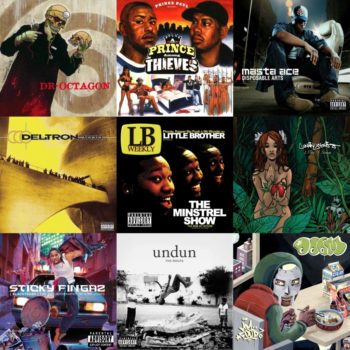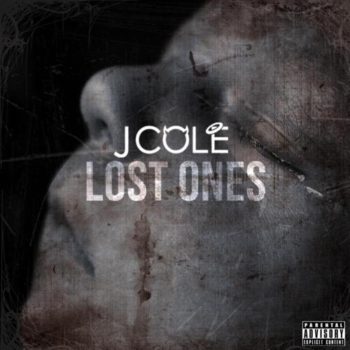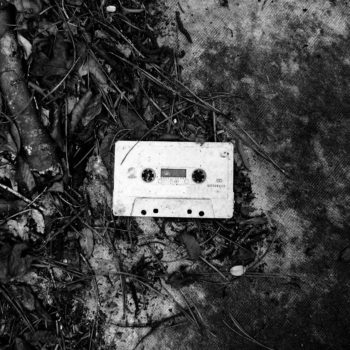I never used to read hip-hop blogs. Or any blogs for that matter.
It was 2006 and as a middle schooler, I was barely acquainted with the world of hip-hop. Eminem was my musical idol. Knowing who Biggie Smalls and 2Pac were made me a well-versed scholar among friends listening to My Chemical Romance, Panic! At The Disco and Maroon 5 on their iPod nanos and Zunes.
In 2007 I joined YouTube and became fervently engaged in my first social media profile. Now that I think about it, my first experience with sharing music on an Internet-scale came when I would upload rare Eminem tracks my step-brother had found for me on Limewire.
Circa 2008, I joined Facebook and reaquainted with old friends I hadn’t heard from since moving to a new town a few years prior. By now, my hip-hop passion had intensified, but my knowledge almost inconceivably grew beyond Nas, some random no-names and anybody affiliated with Em, 50 and Dre. I’d strike up conversations with friends on Facebook and at school to try and see if they shared a similar taste in the far-reaching realm of hip-hop music, but rarely to any avail. At the time, I seemed to be the only kid of my demographic listening to rap music that wasn’t Lil Wayne.
Fast-forward to high school and I met some of the most knowledgeable hip-hop heads I’ve ever known (including eLL., co-founder of The Hip Hop Speakeasy) in person. From them I learned the old, the new and the underground. Everyday we’d talk about hip-hop at the lunch table over sandwiches and the legendary $1-some odd fries our cafeteria served up. We’d put a double order of the spuds in the middle of the table for all to share while we argued if Late Registration was better than The College Dropout; why MF DOOM is one of, if not the greatest emcee of all time; and how bad mainstream rap was at the time. We actually had days where we decidedly tried to avoid talking about hip-hop and instead talk about sports or something. Inevitably, I’d offer my friend an ear bud to listen to a new song I had found and our conversation diverted to hip-hop once again.
I moved once more to a new town, one with nary a hip-hop fan. My urge to throw flames at anybody saying Eminem wasn’t a legend, raise my voice when I found out my supposed hip-hop-listening peers have heard of Lil Wayne but not Nas, and intellectually decide if hip-hop was more artistic now than ever would creep up my neck until I felt stifled in a world unshared by those around me. As the cliché goes: I was alone in the crowd.
The Hip Hop Speakeasy started the summer I moved but it wasn’t until around the same time that I started to visit other blogs (I write more about my earlier days in hip-hop as well as the beginning of The Hip Hop Speakeasy here). Up until this point, my consumption of the internet was Facebook, email and Yahoo articles.
As I stretched my editorial reach, I began perusing various online publications – Kevin Nottingham, Potholes In My Blog, among others – for entertainment, but also for knowledge and inspiration. Here I’d learn about new artists, read in-depth editorials, and even album reviews.
Never before had I read album reviews, and why should I? I can listen to the music on my own, thank you. But the way the writers of these aforementioned sites penned their thoughts on the music, the more I ended up taking away from the music I heard.
The way I had done reviews on this site up until this point was really just to direct readers to the album I thought they should buy, or at least listen to. It was more of a “hey, listen to this” than a thought out construction of my opinions or critique on the music itself (beyond “this is good”). As I wrote more and more (eventually for Kevin Nottingham, too), my reviewing style changed drastically to one that broke down every album like Jenga.
It’s an unflattering comparison, but it’s true and partially because I still didn’t read blogs very much. Yeah, I’d browse these blogs I liked for music or news to devour, but they weren’t anything akin to something like a magazine subscription. I felt no obligation to frequent even my favorite blogs. And yet I ran my own. My writing was that of a try-hard AP English student, as I was, dissecting art into a lofty form of literature really only catering to one type of person: the self-proclaimed music critic. I wrote to foster some form of faux journalism a high school version of me did not possess and did so in an effort to please fellow purveyors of critical literature. I was not reviewing music, I was vomiting thoughts for the sake of elitism.
Being able to say I knew every release that came out and that I could thoroughly evaluate the quality of someone else’s art was the equivalent of a tourist walking into the Sistine Chapel, glancing up and going “yeah, this is pretty dope” or conversely, “eh, I’ve seen better.” There was something so vainly ignorant about the way I reviewed music that put my persona on a pedestal of unfounded perspective with scarce innovation in form, and especially with little attention to detail. I was copying what little I had read on HipHopDX, Pitchfork, and others.
They did this, too and arguably still do to an extent. I took the music, digested it as much as I could on a Tuesday night after school and spewed as many thesauraus-bound words I could to make it known that I knew hip-hop, or so I thought. It’s like I would look at that painted ceiling for a few minutes and then walk outside and tell everyone what I saw. I never got a closer look, I never learned about Michelangelo as an artist. I took in what I could by only examining the thing as a whole. For what? Why did I do this? They did, so it must work, I thought.
Presently, I do not write nearly as many reviews as I once did and that is partly because of my realization of my shortcomings as a hip-hop listener. I forgot that I was a fan first and put my critical mind to work before I could even enjoy the music. And now, reading other websites’ album reviews leaves little to be desired. These writers inject often unnecessary anecdotes preluding a pithy and usually one-sided review of music, if you can even call it that. And these reviews are often so half-baked because the Internet age has brought forth a race among writers to be the first to publish their extensive thoughts about how much a project they just finished listening to means to them, and how important it is for the genre as a whole, or whatever garbage they spew.
I’ve grown hostile towards reviews, ready to rip them apart mentally with judgements like: “That was a pointless comment” or “Did they even listen to the words on this song?”
The reviews that I have done since and enjoyed by others follow a much more useful formula for critiquing music than currently endowed by some of your presumably favored blogs. These reviews focus on the music and the art and craftsmanship of the artist at hand, as well as account for the fact that although it may not be liked, it can be pretty damn good. Basically, I think of a good review like this:
- The writer presents factual information about the album to give context
- The writer describes the music in a way so that the reader can get an idea of what to expect when listening to the project
- A fair assessment of the quality and craft of the album is given
Done. Far and few between are stories, overt opinions and unabashadly diminutive comments that add very little to the assessment of the music. Other reviews do the exact opposite of this and therefore are generally meaningless.
Contemporary hip-hop album reviews, despite being literature, have placed more emphasis on numbers than words. The words mean less now than ever before, while the star-ratings attract the most attention (“remember when Pitchfork gave so-and-so’s album 5 stars!? That album is a classic!”). I read a think piece that harkened a similar discovery, that reviews place little effort in quality and more emphasis on expediency, conformity and prestige. These blogs have an image to uphold, anyhow.
In my frustration, I recognize the importance to be a fan first and a critic second. To appreciate the music as art is to take the time to digest it. For instance, people have asked me what I think of Kendrick Lamar‘s To Pimp A Butterfly (as I have asked others), but I feel that such a complex album requires more than a few listens before truly divulging a solid opinion, so I keep listening.
To review the music is to encourage an audience to take away what they will, but to expect what you describe. Music critiques should be the harbinger of the audio yet to be heard by readers, or to be the evaluation of the work on a level not approached by casual or early listeners. Delving deep beneath the melodies and hooks is the job of the reviewer; to find the underlying meaning, themes and structure of this colossal artwork that is a fully constructed album is the task at hand.
Until reviews follow this sort of evaluation standard, I as well as others may deduce our own opinions of the music we listen to without the help of these critical pieces. So-called professional music reviews can instead be used as a jumping off point for debate, rather than further understanding. No longer are reviews published before an album drops, so a serious style change is definitely in order.






